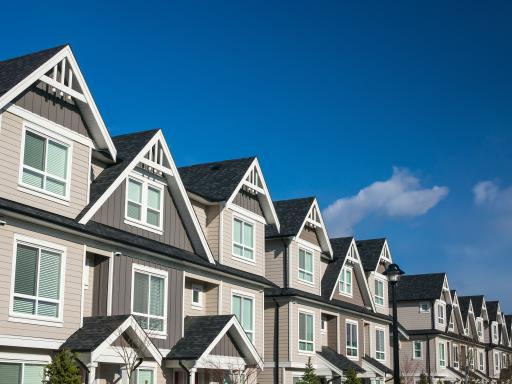Michigan’s First-Ever Statewide Housing Plan Unveiled
To address challenges that impact housing equity across the state, the Michigan State Housing Development Authority launched Michigan’s first-ever Statewide Housing Plan.
To address challenges that impact housing equity across the state, the Michigan State Housing Development Authority launched Michigan’s first-ever Statewide Housing Plan.

To address challenges that impact housing equity across the state, the Michigan State Housing Development Authority (MSHDA) launched Michigan’s first-ever Statewide Housing Plan (SHP).
An overview of the SHP, a five-year blueprint outlining priorities, goals and strategies to support the increase of safe, healthy, affordable and attainable housing, was presented during the Building Michigan Communities Conference last week.
The need for an SHP arose from social and geographic disparities in housing access.
According to MSHDA, in Michigan, homelessness is adversely affecting people of color. Data shows 52% of individuals experiencing homelessness in our state identify as Black, while 14% of the state’s overall population is Black. The cost of housing has also risen dramatically over the last several years. Between January 2013 and October 2021, the average sale price for a home in Michigan increased 84%.
The plan outlines eight priority areas to guide action planning in regions across the state, as well as 37 goals and 134 strategies to create more robust pathways to safe, quality, affordable housing for all Michiganders.
CMF members contributed to the creation of the SHP, along with over 7,000 Michigan residents.
CMF and the Governor’s Office of Foundation Liaison (OFL) connected CMF members to MSHDA to ensure their input was included in the development of the plan through participation in stakeholder groups, outreach for lived experiences, rural focus groups, direct review of final drafts and more.
Priority areas and goals:
• Equity and Racial Justice: Advocate for policy change to remove barriers to housing access, increase accessible housing for vulnerable and marginalized populations and increase opportunities for resident input in the development process.
• Preventing and Ending Homelessness: Create an equitable, just and culturally appropriate homelessness response system, increase access to quality housing options, increase cross-system partnerships and use data to understand the needs of households at risk of and experiencing homelessness.
• Older Adult Housing: Expand the supply of affordable, accessible rental units for older adults, help older adults age in place and increase the availability of affordable facilities that offer a continuum of care for their residents.
• Homeownership: Create homeownership equity across races and ethnic groups, increase homeownership among households that earn lower wages, increase access to homeownership education, products and services and help vulnerable homeowners keep their homes.
• Housing Ecosystem: Enhance collaboration within the housing ecosystem, increase the availability of data on housing needs and opportunities, increase the size and diversity of the construction workforce, offer more opportunities to diverse housing contractors and increase affordable high-speed internet access.
• Housing Stock: Increase the supply of affordable, accessible, attainable and workforce housing, reduce construction and maintenance costs, meet state climate and healthy housing goals, rehabilitate and weatherize existing housing stock, expand zoning practices that increase the housing supply and prevent displacement from gentrifying neighborhoods.
• Rental Housing: Reduce the number of evictions and the number of people experiencing rent burden and increase the quality of rental housing.
• Communication and Education: Increase awareness and support for affordable and attainable housing, increase understanding of existing housing programs and services, enhance awareness of fair housing rights and increase financial literacy and wealth-building.
According to the overview, a new statewide housing partnership and regional groups will work in tandem, along with Michigan’s Campaign to End Homelessness, to meet the goals of the plan. The regional consortiums will engage local groups to create the regional action plans for achieving the goals and strategies they select from the eight priority areas.
One of the key tasks of the SHP will be to strategically coordinate and leverage housing investment from a variety of sources, including federal and other funding sources.
Governor Gretchen Whitmer has committed to supply the state with 75,000 new housing units in the next five years through a combination of public and private resources. The SHP will provide guidance on how to carry out this commitment.
Other key tasks of the SHP include:
• The stabilization of housing for 100,000+ households.
• Significantly reduce equity gaps in homelessness and homeownership.
• Strive to make homelessness rare, brief and one time instead of an ongoing experience.
• Increase home energy efficiency and make weatherization improvements in 15,000+ households.
Over the course of five years, a public dashboard will report on statewide and regional outcomes, including progress on the statewide targets outlined in the plan.
Want more?
Read the full press release.
Read the full Statewide Housing Plan overview.